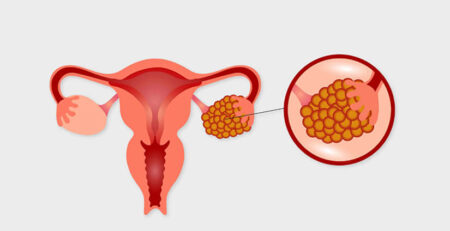How to Get Pregnant with Hypothyroidism?
For many women, planning a pregnancy is an exciting journey. However, if you have hypothyroidism, you may find yourself dealing with additional questions, concerns, and uncertainties about how this condition might impact your ability to conceive and carry a healthy pregnancy. Hypothyroidism in pregnancy requires special attention and management, but with the right guidance and care, it’s possible to navigate this path successfully.
This guide will take you through everything you need to know about conceiving with hypothyroidism, the risks associated with thyroid conditions for your baby, and the available support options, including consulting an IVF specialist in Delhi.
What is Hypothyroidism?
Hypothyroidism is a condition where the thyroid gland, located in the neck, doesn’t produce enough thyroid hormones to meet the body’s needs. These hormones play an essential role in regulating metabolism, growth, and other bodily functions, including reproductive health. Hypothyroidism can lead to symptoms such as fatigue, weight gain, depression, and irregular menstrual cycles. Since hormone balance is key to fertility, hypothyroidism can create challenges for women trying to conceive.
When it comes to pregnancy, hypothyroidism needs to be managed carefully because the developing baby relies on maternal thyroid hormones, especially in the first trimester. This is why addressing hypothyroidism in pregnancy is crucial for both your health and your baby’s development.
How Hypothyroidism Affects Conception?
One of the significant impacts of hypothyroidism on pregnancy is its effect on fertility. Thyroid hormones play a pivotal role in reproductive health, and an imbalance can disrupt ovulation and make it difficult to conceive. Here’s how hypothyroidism can affect your fertility:
- Hormonal Imbalance: Hypothyroidism affects the hypothalamic-pituitary-ovarian axis, a system that controls hormone release necessary for ovulation. When thyroid hormone levels are low, it can disrupt this axis, leading to irregular menstrual cycles or anovulation (lack of ovulation).
- Luteal Phase Defect: Low thyroid hormone levels can shorten the luteal phase (the period after ovulation and before menstruation), making it harder for a fertilized egg to implant in the uterus.
- Increased Risk of Miscarriage: Women with unmanaged hypothyroidism face a higher risk of miscarriage, making it essential to stabilize thyroid levels before and during pregnancy.
Addressing hypothyroidism in pregnancy is critical not only for conception but also for sustaining a healthy pregnancy. Regular consultations and monitoring with your healthcare provider can help optimize your thyroid levels, improving your chances of conception.

Steps to Take Before Trying to Conceive with Hypothyroidism
If you have hypothyroidism and are planning to get pregnant, consider taking the following proactive steps:
- Consult Your Healthcare Provider or an IVF Specialist in Delhi
The first step is to work closely with your healthcare provider or a specialist. An experienced IVF specialist in Delhi can provide insights into how hypothyroidism may affect your fertility and recommend a treatment plan tailored to your needs. They can adjust your medication to ensure optimal thyroid levels and monitor your hormone levels throughout the journey.
- Optimize Thyroid Levels
Aim to have your thyroid-stimulating hormone (TSH) levels within the recommended range for pregnancy. Typically, a TSH level below 2.5 mIU/L is ideal for women trying to conceive. Regular testing and medication adjustments can help maintain these levels.
- Manage Stress
Chronic stress can exacerbate thyroid problems and impact fertility. Consider incorporating stress-management practices like yoga, meditation, or mindfulness into your routine, as they can support both thyroid health and fertility.
- Maintain a Balanced Diet
A balanced diet rich in essential nutrients can support thyroid function. Foods high in iodine, selenium, and zinc are particularly beneficial for thyroid health. Consult a dietitian if you need guidance on a thyroid-friendly diet.
During Pregnancy: Managing Hypothyroidism
Once you’re pregnant, managing hypothyroidism becomes even more critical. Pregnancy increases the body’s demand for thyroid hormones, and hormone levels should be closely monitored to ensure they meet this increased demand.
- Frequent Thyroid Function Testing
Throughout pregnancy, it’s important to have your thyroid hormone levels checked every 4-6 weeks. Adjustments to medication may be necessary as pregnancy progresses to maintain optimal levels and ensure that hypothyroidism in pregnancy remains under control.
- Monitor Iodine Intake
Iodine is essential for thyroid hormone production, and pregnancy increases iodine requirements. While supplements can be helpful, excessive iodine intake can also disrupt thyroid function, so consult your doctor for guidance.
- Follow a Nutrient-Rich Diet
Eating a balanced diet is crucial for both you and your baby. Foods rich in folic acid, iron, and vitamin D are particularly beneficial. Make sure to include sources of iodine and selenium, such as eggs, dairy, fish, and nuts, in your diet.
Risks of Thyroid Dysfunction to the Baby
A major concern with hypothyroidism in pregnancy is the potential risk of thyroid-related complications to the baby. Here’s what you should know:
- Developmental Delays: Thyroid hormones are crucial for the baby’s brain development, especially during the first trimester. Insufficient thyroid hormone levels in the mother may increase the risk of cognitive delays in the baby.
- Risk of Low Birth Weight: Hypothyroidism can lead to low birth weight, which may require additional care and monitoring for the baby after birth.
- Potential for Thyroid Dysfunction in Baby: Unmanaged hypothyroidism in pregnancy may affect the baby’s thyroid function, leading to issues that could require treatment after birth.
- Preterm Birth: Women with hypothyroidism may be at higher risk for preterm birth, which can pose challenges to the baby’s health and development.
By staying vigilant and managing hypothyroidism effectively, you can minimize these risks and support a healthy pregnancy. It’s also beneficial to work with an IVF specialist in Delhi if you need assistance with conception, as they can provide tailored guidance and monitor both your thyroid health and fertility journey.
Assisted Reproductive Techniques and Hypothyroidism
For some women, hypothyroidism may make natural conception challenging, even with optimal treatment. In these cases, assisted reproductive techniques such as In Vitro Fertilization (IVF) can be valuable options. An IVF specialist in Delhi can assess your overall health, including thyroid function, to design a personalized treatment plan.
- Hormonal Adjustments: During the IVF process, medications are often adjusted to ensure thyroid hormones remain within a safe range, increasing the chances of implantation and successful pregnancy.
- Close Monitoring: IVF requires regular hormone monitoring, which helps ensure that hypothyroidism in pregnancy is well-managed.
Myth-Busting: Common Misconceptions About Hypothyroidism in Pregnancy
Hypothyroidism can often be misunderstood, and these misconceptions can create unnecessary anxiety for women trying to conceive. Here are some common myths debunked:
- Myth: Hypothyroidism makes pregnancy impossible.
- Fact: With proper treatment and monitoring, many women with hypothyroidism conceive and have healthy pregnancies. Medical advancements, especially with access to specialist in Delhi, make this journey even more accessible.
- Myth: Pregnancy will worsen hypothyroidism.
- Fact: Pregnancy does increase the body’s demand for thyroid hormones, but with medical management, thyroid levels can be kept stable, ensuring a safe pregnancy.
- Myth: Thyroid medication is unsafe during pregnancy.
- Fact: Thyroid medications are often essential during pregnancy and can be safely taken under a doctor’s guidance to maintain optimal thyroid levels.

Take Control of Your Thyroid Health for a Successful Pregnancy
Hypothyroidism in pregnancy doesn’t have to be a barrier to a healthy conception and delivery. With the right care, consistent monitoring, and support from a dedicated healthcare team, you can achieve your dream of becoming a parent. Consider these tips to make the journey smoother:
- Stay Informed: The more you know about hypothyroidism in pregnancy, the better equipped you are to manage it. Research, ask questions, and stay proactive in managing your health.
- Seek Professional Guidance: Partner with a gynaecologist in Delhi who has experience working with thyroid-related fertility challenges. Their expertise can make a significant difference in both conception and pregnancy health.
- Adopt a Holistic Approach: Diet, exercise, stress management, and medication all play a role in managing hypothyroidism and supporting your fertility journey. A holistic approach often yields the best results.
A Healthy Pregnancy is Possible: Take the Next Step with Dr. Rhythm Gupta
If you’re navigating hypothyroidism in pregnancy and are seeking expert assistance, Dr. Rhythm Gupta, a highly regarded IVF specialist in Delhi, can provide the guidance and support you need. Dr. Gupta offers personalized fertility care, focusing on balancing thyroid health and maximizing fertility potential. With Dr. Gupta’s expertise, you can feel confident that your journey to parenthood is in capable hands.
Take the next step and schedule a consultation to discuss a tailored treatment plan designed specifically for your thyroid and fertility needs. Start your path to a healthy, thriving pregnancy today!












